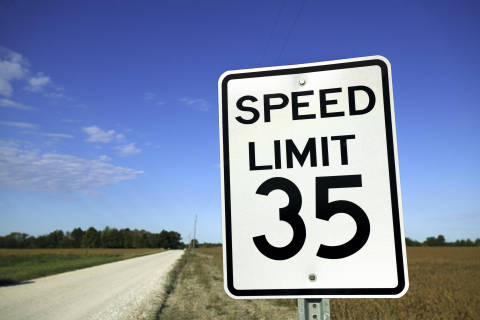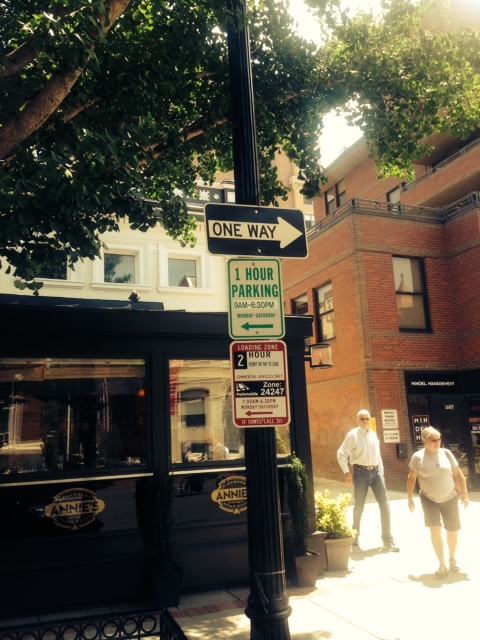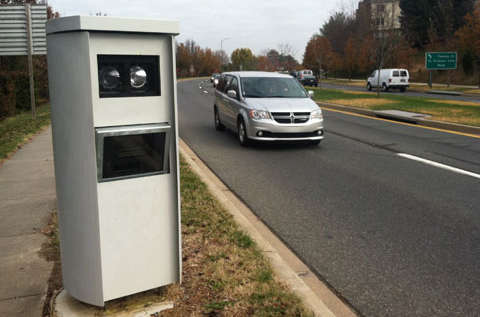WASHINGTON — As WTOP Ticketbuster has highlighted case after case of bureaucracy and red tape involving ticket writers and hearing examiners in the District of Columbia, one lawmaker wants to begin an overhaul of the system to fix the problems.
D.C. Council member Mary Cheh, who oversees all the key agencies involved in the ticketing process, will introduce a bill Tuesday called the Transportation Reorganization Act. The bill would remove ticket-writing responsibility from the Department of Public Works, remove the maintenance of parking signs from the Department of Transportation and strip the Department of Motor Vehicles of ticket adjudication.
Cheh’s proposal would put all three areas under the aegis of a new agency called the Department of Parking Management.
“It will make a lot of sense and avoid a lot of the issues between the lack of communication between these various agencies,” says Cheh.
She admits our WTOP Ticketbuster series has played a key role in this proposal, along with similar stories from WTOP’s news partners at 7 On Your Side. In February, she called the stories from people who came forward to WTOP Ticketbuster, and testified, “jaw-dropping.”
“We want to make the DMV responsible for the things that DMVs do — get you your license and things of that sort. But the Department of Parking Management would deal with enforcement and adjudication,” she says.
AAA Mid-Atlantic supports the Cheh proposal. The organization has partnered with WTOP Ticketbuster on several occasions to help with drivers stuck in red tape.
“This proposed measure will bring major and much-needed changes to the parking ticketing process in the District, which is nightmarish and horrendous. District drivers and non-resident motorists say they have had enough of the draconian ticketing, for which the city is notorious,” says John Townsend, AAA Mid- Atlantic’s manager of public and government affairs.
“At this juncture, the city’s traffic adjudication system is so onerous that only a fraction of the ticketed motorists even bother to challenge their parking tickets. The process of appealing a parking ticket to the Traffic Adjudication Appeals Board is very costly, tedious and time-consuming to motorists.”
As WTOP Ticketbuster has profiled repeatedly over the last year, many drivers are the victims of bad tickets that should have been caught, then are found liable at a DMV hearing despite presenting the proper evidence to exonerate themselves. These drivers often appeal the decision and must wait two years for a final ruling.
“I do think people try and do the best job they can. But if they are operating within a structure that makes it difficult, makes them do an incomplete job, or forces them to be negligent, then we need to give them the right structure to perform efficiently,” says Cheh.
Also, she says she believes the Traffic Adjudication Amendment Act, proposed last year by council chairman Phil Mendelson and council member Jim Graham, will help solve some of the problems. Cheh’s Committee on Transportation and the Environment marked up the bill in March and will do an initial committee vote on Tuesday.
The bill would allow a person to open his case based on new evidence or probable error committed by the hearing examiner. The DMV would then have six months to review the decision and dismiss it or reaffirm it.
It would require the DMV to provide more detailed information on why a hearing examiner found a driver liable. Right now, DMV hearing examiner decisions are form letters that often barely address the defense from the driver or explain why the defense was not good enough.
The bill also would allow more time for a driver to respond to cases when the driver asserts the ticketed car does not belong to them or the license plates had been reported stolen. Currently, drivers must respond and provide evidence within 60 days, but in these cases, drivers would get up to a year.
Cheh is considering adding new language into the bill after WTOP revealed to her a glaring error that plagues many WTOP Ticketbuster victims.
Currently, when a ticket on an out-of-state vehicle goes unpaid in the District, the DMV will contact another DMV and ask only for the name and address tied to the license plate. The D.C. DMV does not ask for the full record, which includes make, model and whether the plates are still active. Random drivers get notices for tickets that have their license plate, but have the wrong make. For example, the notice will say Jeep, but the driver owns a Ford.
Jurisdictions in Maryland and Virginia always obtain the full driving record for out-of-state unpaid tickets, which allow them to compare the ticket to the DMV record and spot errors before any notices are mailed out.
“The real aim is to head off at the pass anything that is erroneous, so that you don’t even get the ticket or any notices. Why should you have to go through that hassle?,” says Cheh.
If the Traffic Adjudication Amendment Act passes, the changes would get folded into any new organization formed under the Transportation Reorganization Act.
“Many a motorist who contest parking tickets leave the system feeling they were bereft of a fair and equitable review of their tickets. In their view, their cases were stamped with the words







